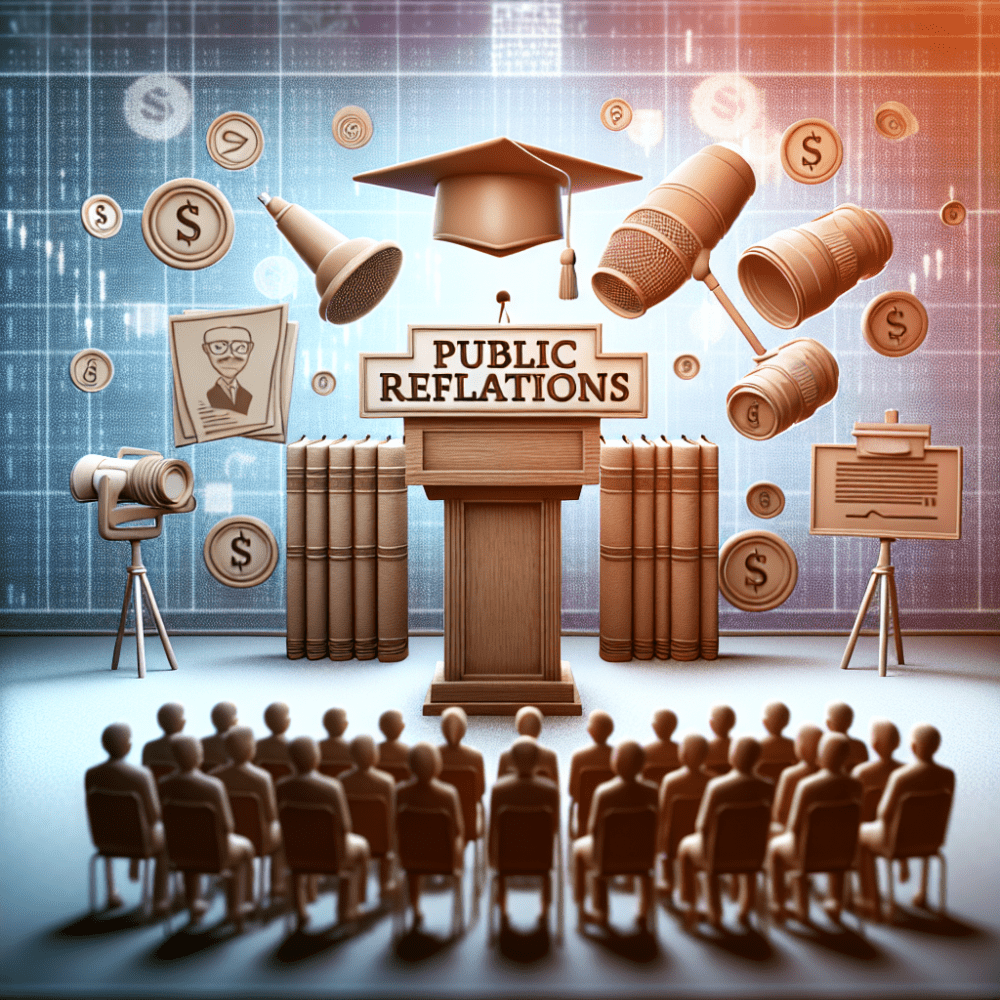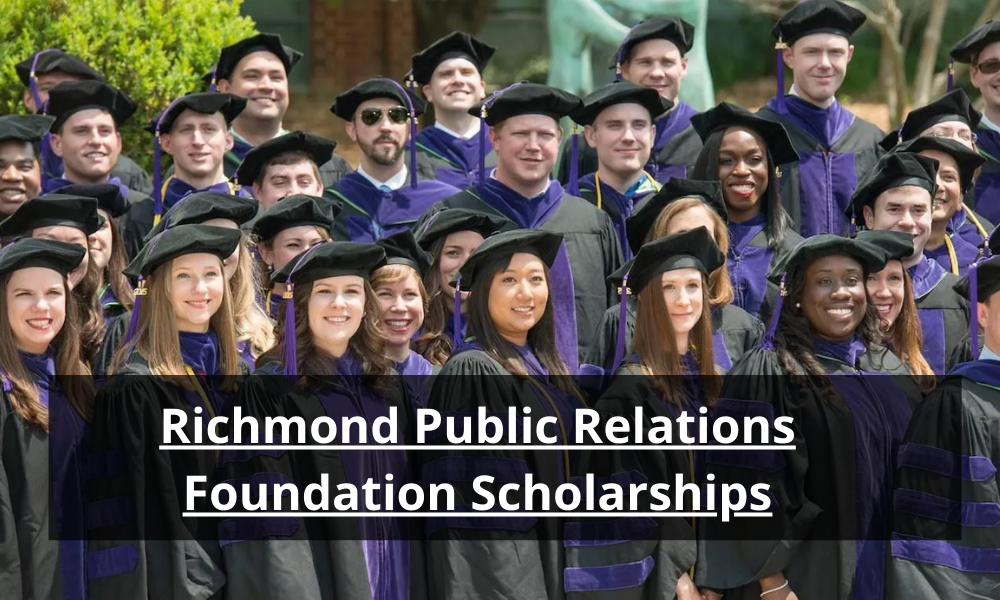
Unlocking Your PR Dreams: My Journey to Public Relations Scholarships
I remember it like it was yesterday, sitting at my small, wobbly desk, the glow of my laptop screen illuminating a future I desperately wanted but couldn’t quite grasp. Public relations. The idea of crafting narratives, connecting people, shaping perceptions – it utterly captivated me. I saw myself working with brands, helping causes, being the voice that bridges understanding. But then, the cold, hard reality of tuition fees would hit, a wall that seemed insurmountable. My family wasn’t wealthy, and the thought of accumulating mountains of student loan debt before even starting my career felt like a crushing weight. That’s when the whispers started, the faint idea that maybe, just maybe, there was another way: scholarships.
At first, "scholarships" felt like a mythical creature, something only for the absolute geniuses or the most athletic. I was a decent student, passionate, but certainly not a prodigy. The sheer volume of information online was overwhelming. Where do you even begin? It felt like searching for a needle in a haystack, and my motivation often wavered. But the dream of PR was strong, stronger than the fear of rejection or the daunting research. So, I decided to dive in, headfirst, into the vast ocean of financial aid. This isn’t just a story about money; it’s about believing in your path and finding the keys to unlock it.
My journey began with a simple, yet powerful, Google search: "public relations scholarships." The results were a mix of national organizations, local chapters, university-specific awards, and even some niche opportunities. It was a lot to take in. My first crucial step was to get organized. I created a spreadsheet – yes, a good old spreadsheet – to track every scholarship I found. Columns included the name of the scholarship, the awarding organization, the deadline, the amount, eligibility requirements, and a space for notes on what documents I needed to prepare. This seemingly simple act transformed my chaotic search into a structured project.
What I quickly learned was that public relations, as a field, is incredibly supportive of its future professionals. Organizations like the Public Relations Society of America (PRSA) and the International Association of Business Communicators (IABC) aren’t just for seasoned pros; they are deeply invested in nurturing new talent. Many of their local and national chapters offer scholarships specifically for students pursuing PR or related communications degrees. These weren’t just small awards either; some covered a significant portion of tuition. It was a revelation. It meant my passion for PR was actually a benefit in securing funding, not just a personal interest.
The eligibility criteria varied wildly. Some scholarships were strictly merit-based, looking for high GPAs and academic excellence. Others focused on financial need, understanding that talent isn’t exclusive to those with deep pockets. Then there were the scholarships that celebrated diversity, aiming to bring a broader range of voices and perspectives into the PR industry – a goal I deeply admired. Some were tied to specific universities, while others were open to students at any accredited institution. This meant I had to read every description carefully, cross-referencing my own profile with their requirements. It was tedious work, but every time I found a scholarship I might qualify for, a flicker of hope ignited.
One of the biggest hurdles, and arguably the most important component, was the essay. Every single scholarship application asked for one, sometimes several. This wasn’t just about showing off my writing skills; it was about telling my story, articulating my passion for public relations, and explaining how I envisioned contributing to the field. I remember staring at a blank page for hours, trying to find the right words. How do you make your story unique when so many other bright, ambitious students are also applying?
My approach shifted when I realized they weren’t just looking for perfect prose; they were looking for authenticity. I started writing about why PR mattered to me personally. I recounted an experience volunteering for a local animal shelter, where I helped craft social media messages to encourage adoptions. Seeing a shy, often overlooked dog find its forever home because of a well-worded post was my "aha!" moment. It wasn’t just about selling; it was about connecting, informing, and making a positive impact. I poured my heart into those essays, sharing my vulnerabilities, my aspirations, and my genuine belief in the power of effective communication. I talked about specific areas of PR that intrigued me – crisis communication, non-profit advocacy, digital storytelling – showing I had done my homework and had specific goals.
Beyond the essays, recommendation letters were another critical piece of the puzzle. I approached professors who knew me well, who had seen my dedication in their classes, and who could speak to my potential. I didn’t just ask them for a letter; I provided them with my resume, a list of the scholarships I was applying for, and a brief summary of my career aspirations. This made it easier for them to write tailored, impactful letters that truly championed my abilities and character. I also asked my supervisor from a part-time job – a customer service role where I learned a lot about communicating with diverse groups – for a recommendation, showcasing my practical skills and work ethic.
And then there were the often-overlooked opportunities: local professional chapters. I joined my local PRSA student chapter and attended their events. Not only did I learn a ton about the industry, but I also discovered that they offered scholarships to local students. These often had fewer applicants than national awards, increasing my chances. Networking at these events felt daunting at first, but I quickly realized that the professionals were incredibly welcoming and eager to help. They genuinely wanted to see young people succeed. Some even offered advice on my essays or connected me with other scholarship resources. It was a powerful lesson in the value of community within the PR world.
The application process was a marathon, not a sprint. Deadlines stretched across months, from early fall to late spring. I learned to manage my time, chipping away at applications one by one. There were rejections, of course. Plenty of them. Each "no" stung, making me question if I was good enough, if this dream was truly meant for me. But I remembered the spreadsheet, the list of remaining opportunities, and I pushed through. Each rejection became a lesson: maybe that scholarship wasn’t the right fit, or maybe I needed to refine my next essay even further. It wasn’t about giving up; it was about refining my approach.
Then, one sunny afternoon, an email landed in my inbox. It wasn’t a rejection. It was an acceptance! A scholarship from a regional communications organization, specifically for students demonstrating a passion for ethical PR practices. My heart pounded as I read the details. It wasn’t the full tuition, but it was a substantial amount, enough to significantly lighten the financial burden for that academic year. I remember the immense relief, the wave of validation. It wasn’t just money; it was someone else believing in my potential, in my dream.
That first scholarship was a catalyst. It gave me the confidence to apply for more, to push harder. Over the course of my degree, I secured several more scholarships, some smaller, some larger, each one chipping away at the cost of my education. These included:
- Academic Merit Scholarships: These were often tied to my GPA and overall academic performance. Maintaining good grades wasn’t just about learning; it was also a strategic move for funding.
- Need-Based Scholarships: While some might think these are only for those in dire financial situations, many scholarships consider a broad range of financial circumstances. Don’t self-select out; always check the criteria.
- Diversity Scholarships: As a person from a modest background, I qualified for several scholarships aimed at increasing diversity within the PR field. These often looked for unique perspectives and experiences.
- Specialized PR Scholarships: Some organizations offered scholarships for specific areas like digital PR, crisis communication, or corporate social responsibility. If you have a niche interest, explore these!
- University-Specific Scholarships: My university also had its own pool of scholarships for communications students. These are often easier to get because the applicant pool is smaller and you’re already part of the institution.
Beyond the financial relief, these scholarships brought other invaluable benefits. They connected me to the organizations that awarded them, often leading to mentorship opportunities or invitations to exclusive industry events. I met seasoned professionals who shared their wisdom, offered guidance on my career path, and even helped me land internships. The scholarship award itself became a line on my resume, a testament to my dedication and recognized potential. It wasn’t just about paying for college; it was about building a network and establishing myself in the industry before I even graduated.
For anyone out there dreaming of a career in public relations but feeling daunted by the cost, please hear this: do not give up. The scholarships are out there, waiting for you. It requires effort, persistence, and a belief in yourself, but it is absolutely achievable. Here are some of the key takeaways from my journey, lessons I wish I knew from the very beginning:
- Start Early, Like, Really Early: Scholarship deadlines can be as early as a year before you need the funds. The sooner you start researching and preparing, the more opportunities you’ll find and the less rushed you’ll feel.
- Organize Everything: A spreadsheet is your best friend. Track deadlines, requirements, and the status of each application. This prevents missed opportunities and keeps you sane.
- Tailor Every Application: Do not send generic essays or recommendation requests. Each scholarship is unique, and your application should reflect that you’ve done your homework and understand what they’re looking for.
- Tell Your Story, Authentically: Scholarship committees want to know you. What drives your passion for PR? What unique experiences have shaped your perspective? Be honest, be vulnerable, and let your personality shine through.
- Cultivate Strong Relationships: Your professors, mentors, and supervisors are your advocates. Nurture these relationships, and they will be more than willing to write compelling recommendation letters for you.
- Get Involved: Join student PR clubs, volunteer for causes you care about, take on leadership roles. These experiences not only strengthen your resume but also provide powerful material for your essays.
- Proofread, Proofread, Proofread: A sloppy application can instantly disqualify you. Check for grammar, spelling, and clarity. Ask a trusted friend, family member, or professor to review your essays.
- Don’t Be Afraid to Ask for Help: If you’re struggling with an essay, talk to a writing center at your school. If you’re unsure about an application detail, reach out to the scholarship organization. They are often happy to clarify.
- Embrace Rejection, Learn from It: Not every application will be successful, and that’s okay. Use each "no" as motivation to refine your approach for the next opportunity. It’s part of the process.
- Explore All Avenues: Don’t just look for PR-specific scholarships. Check out general university scholarships, scholarships based on your background, interests, or even obscure hobbies. Every little bit helps.
My public relations career began with that first scholarship email. It wasn’t just a financial award; it was a validation, a boost of confidence, and an invitation into a community I now proudly belong to. The journey to funding my education taught me invaluable lessons in perseverance, strategic planning, and the power of storytelling – skills that are, ironically, at the very core of public relations itself.
So, if you’re reading this, feeling that familiar mix of excitement and apprehension about your PR dreams, know that the resources are there. Your passion, your unique story, and your dedication are your greatest assets. Take that first step, open that spreadsheet, and start writing your own success story. The world of public relations is waiting for your voice, and there are people ready to help you find it.


